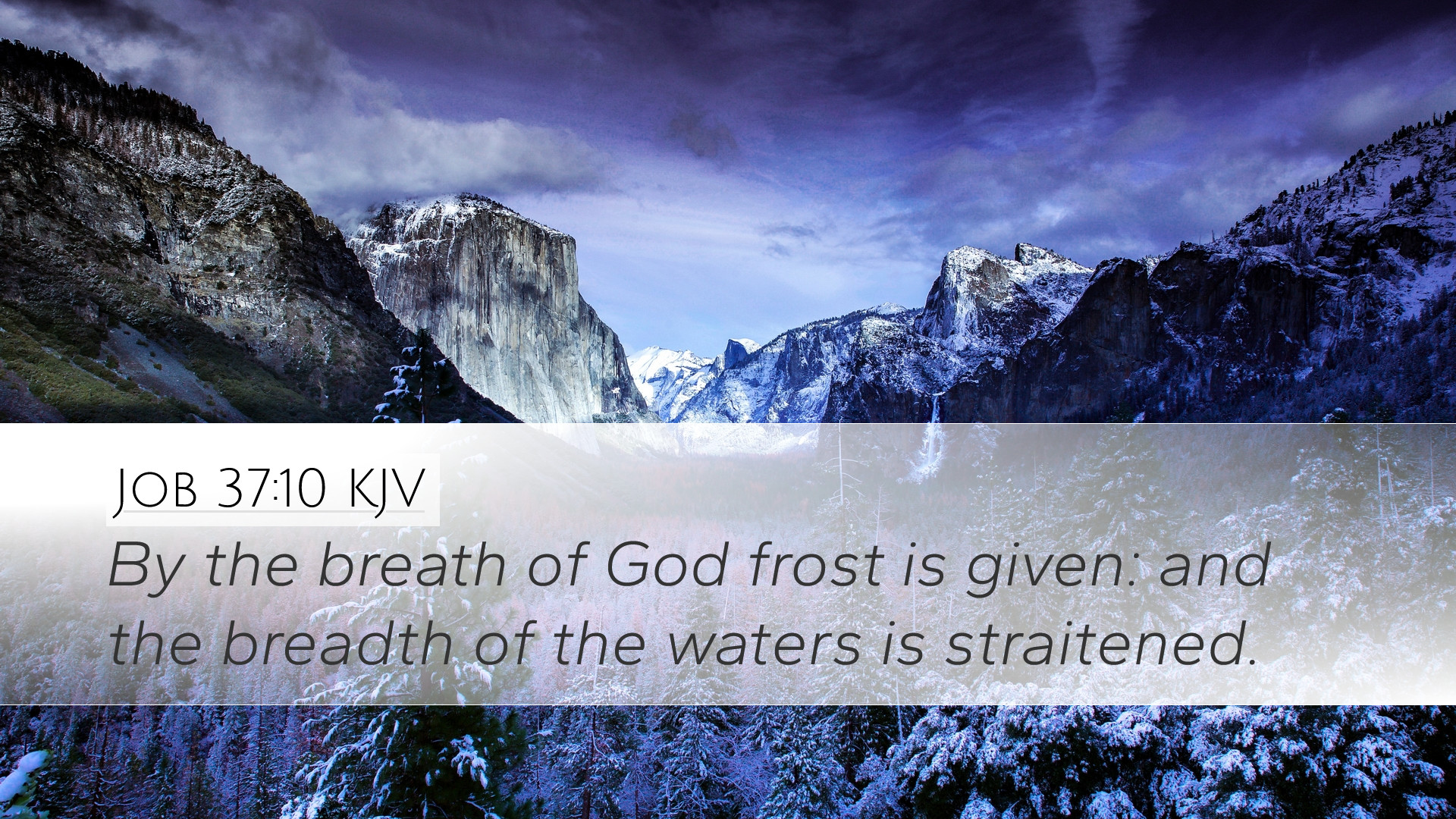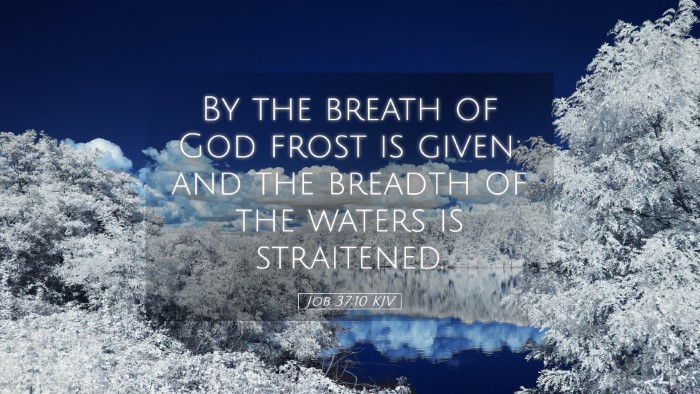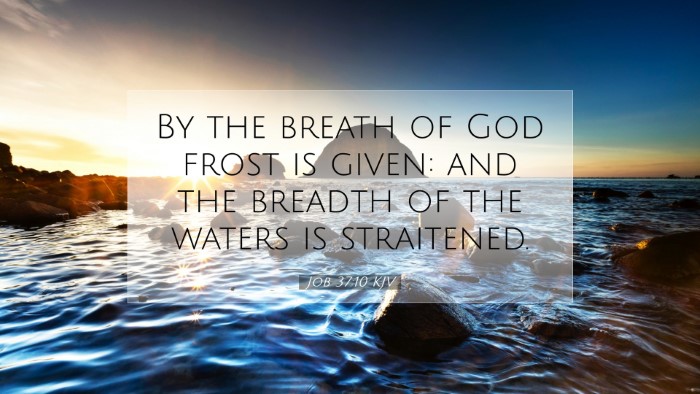Old Testament
Genesis Exodus Leviticus Numbers Deuteronomy Joshua Judges Ruth 1 Samuel 2 Samuel 1 Kings 2 Kings 1 Chronicles 2 Chronicles Ezra Nehemiah Esther Job Psalms Proverbs Ecclesiastes Song of Solomon Isaiah Jeremiah Lamentations Ezekiel Daniel Hosea Joel Amos Obadiah Jonah Micah Nahum Habakkuk Zephaniah Haggai Zechariah MalachiJob 37:10
Job 37:10 KJV
By the breath of God frost is given: and the breadth of the waters is straitened.
Job 37:10 Bible Commentary
Commentary on Job 37:10
Verse Context: Job 37:10 states, "By the breath of God frost is given: and the breadth of the waters is straitened." This verse speaks to the power and sovereignty of God over creation, particularly in the phenomena of nature.
Key Themes
- The Sovereignty of God: The verse emphasizes God's ultimate authority over the natural world. Just as He commands the elements, He orchestrates all events according to His divine purpose.
- The Power of His Word: The reference to "the breath of God" indicates that God's voice has creative power. This aligns with the biblical principle that God's words bring into being that which does not exist.
- Creation's Response: Creation itself responds to God's commands, showcasing the harmony between divine intention and natural events.
Commentary Insights
Matthew Henry's Commentary
Matthew Henry highlights the marvelous nature of God's workings in creation. He notes that "by the breath of God," we see God's control over all elements, including frost. Henry emphasizes that the cold and the frost are as much under God's direction as the heat and the sunshine. He points out the humility that believers should possess in understanding that such natural phenomena are not random but are under divine authority.
Albert Barnes' Commentary
Albert Barnes focuses on the metaphorical implications of "breath" in relation to God's creative power. He explains that frost is a product of God's decree and serves to remind us of His might. Barnes elaborates that the "breadth of the waters" refers to God's command over the sea, emphasizing His ability to restrain and control vast expanses of water. This serves as an illustration of God's omnipotence and omnipresence, which should elicit awe and reverence from humanity.
Adam Clarke's Commentary
Adam Clarke offers a detailed exploration of the imagery used in the verse. He delves into the scientific aspects of frost formation and highlights that it is a demonstration of God's wisdom in the laws of nature. Clarke asserts that what we perceive as a natural phenomenon is rooted in the divine will; thus, understanding science in the light of faith enhances our appreciation for God's handiwork.
Theological Implications
- God's Immanence: The text illustrates that God is intimately involved in the workings of the universe, reinforcing His nature as both transcendent and immanent.
- Reflection on Human Limitations: This verse compels readers to acknowledge human limitations in the face of divine power, fostering a spirit of submission and worship worthy of the Creator.
- Creation as Revelation: Nature serves as a means of revelation, through which humans can understand God's character, majesty, and glory.
Application for Believers
For pastors and students of the Bible, Job 37:10 encourages a deepened faith in God's control over all circumstances. It serves as a reminder to look for God’s hand in the natural world and to teach congregations about the interconnectedness of faith and creation. This verse also invites reflection on personal humility and the recognition of God’s sovereignty in both good times and in challenging seasons.
Conclusion
In summary, Job 37:10 offers profound insights into the nature of God as the omnipotent Creator who governs all aspects of creation. Commentators like Matthew Henry, Albert Barnes, and Adam Clarke provide rich interpretations that reinforce the importance of acknowledging God’s sovereignty and recognizing His active role in the world. As believers study this verse, they are invited to reflect on the majesty of God and their position within His divine order.


